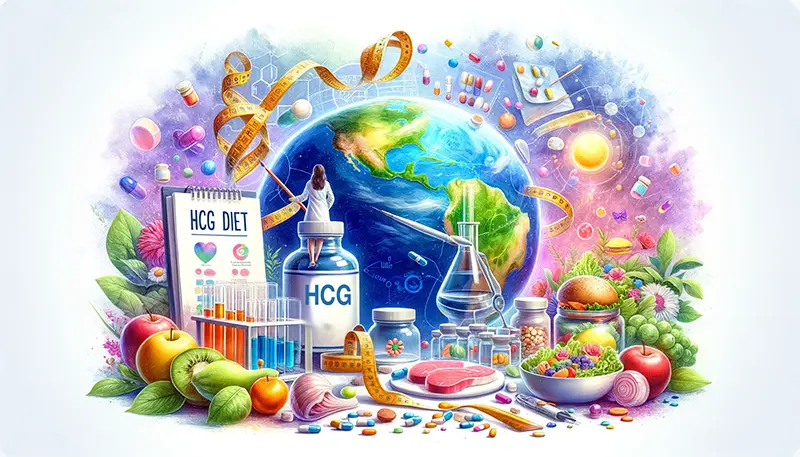
Understanding the HCG Diet
The HCG diet, or Human Chorionic Gonadotropin, is a weight system plan that uses the HCG hormone alongside a strict, low-calorie diet. HCG is a hormone produced by the body during pregnancy. The diet’s primary benefit is rapid weight loss, but it also will reset your metabolism to reduce feelings of hunger.
The HCG Diet Phases
The HCG diet typically consists of three phases:
1. The loading phase: During this phase, you begin taking HCG and eat plenty of high-fat, high-calorie foods for two days.
2. The weight loss phase: You continue taking HCG and eat only 500 calories daily for 3 to 6 weeks.
3. The maintenance phase: You stop taking HCG and gradually increase your food intake, but avoid sugar and starch for three weeks.
An In-Depth Look at the Components of the HCG Diet
The HCG Hormone
HCG, or Human Chorionic Gonadotropin, is a hormone the body produces during pregnancy. In the HCG diet, this hormone is taken in the form of injections, pellets, sprays, or drops placed under the tongue.
The Low-Calorie Diet
The second key component of the HCG diet is a low-calorie diet. This restrictive diet only allows 500 calories per day during the weight loss phase. It’s typically divided into two meals daily, lunch and dinner, each consisting of one protein, vegetable, bread, and fruit.
Considerations for Specific Groups and Situations
Pregnant or Nursing Women
Pregnant and nursing women should not follow the HCG diet as the hormone is naturally produced during pregnancy, and a low-calorie diet may not provide sufficient nutrients for nursing mothers or developing babies.
People with Health Conditions
Individuals with health conditions such as heart disease, diabetes, or high blood pressure should consult with a healthcare professional before starting the HCG diet, as the low-calorie intake may exacerbate these conditions.
Practical Advice on Implementing the HCG Diet
Consult a Healthcare Professional
Before starting the HCG diet, consulting with a healthcare professional is crucial. They can guide you on your diet and monitor your progress.
Plan Your Meals
To stick to the low-calorie diet, plan your meals. This ensures you have the right foods and helps you avoid temptation.
Stay Hydrated
Drink plenty of water throughout the diet. Staying hydrated can help control hunger and maintain overall health.
Monitor Your Progress
Keep track of your weight loss progress. This can help you stay motivated and make necessary adjustments to your diet plan.
The HCG diet offers rapid weight loss, but it requires strict adherence and medical supervision. It’s crucial to thoroughly understand the diet and its implications before starting. Although the diet is challenging, careful planning and commitment can lead to significant weight loss and a healthier lifestyle.




